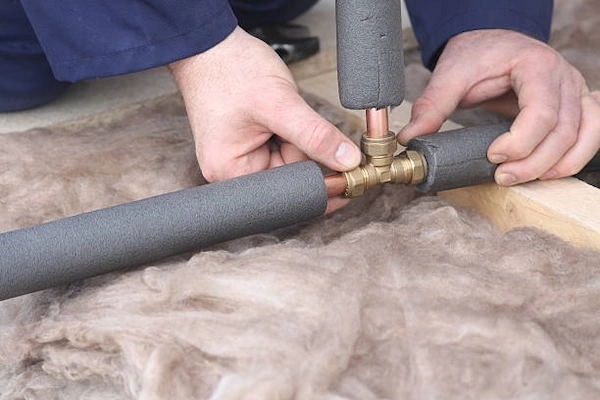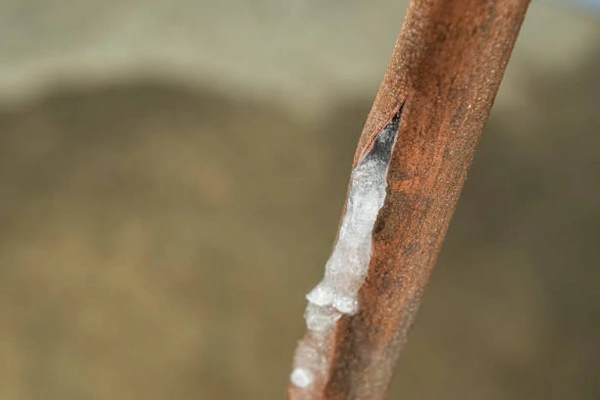Catching a chill isn’t the only thing landlords have to worry about during winter. As the temperature plummets, burst pipes become a growing concern for property owners looking to preserve the integrity of their investments. Whether you’re a homeowner planning to sell your rental property come spring or a landlord trying to ensure the convenience of your tenants, this article is for you.
Are you looking for essential strategies to shield your house from the frigid air? Interested in cutting down repair costs? Well, stick around as we reveal how to prevent burst pipes in a rental property during winter. This post offers practical insights for tenants and landlords, from insulation techniques to proactive maintenance. So, let’s get started:
Cost of Emergency Maintenance
Before diving into how to preserve the integrity of your pipes, we should have a good grasp of how much you stand to lose by ignoring proper safety protocols.
1. Plumbing Emergencies
It’s a no-brainer that a burst pipe is a plumbing emergency, but repair costs can vary widely depending on the nature and severity of the issue. Depending on where the damage happens, you could deal with anything from a severe leak to a flooded bathroom or even a sewage backup.
Thus, the price of repairing the pipe could range from a few hundred to several thousand dollars, depending on the extent of the damage. However, most homeowners run an average bill of $500 for moderate repairs with a partial pipe replacement.
2. Electrical Issues
Besides plumbing issues, another common consequence of a burst pipe is electrical issues. When water touches your outlet or electrical panels, it can cause it to short circuit. While an outlet replacement could cost $150, rewiring your panels could require over a thousand dollars. Moreover, time of day can also affect your price, as professionals charge more during non-business hours.
3. HVAC Failures
Urgent repairs to heating or cooling systems, especially in extreme weather conditions, may cost several dollars. The typical range is often within $200 – $600, but if a burst pipe floods your HVAC, you might need to replace the entire unit. Connect with a reliable property manager from Richmond to provide tips on winterizing your rental to avoid unnecessary expenses.
Is Insulation Worth the Investment?

1. Energy Efficiency
Insulation is often worth the investment for several compelling reasons, including greater energy efficiency.Effective insulation aids in controlling indoor temperatures, minimizing the reliance on excessive heating or cooling. In other words, it lowers energy consumption and utility bills.
2. Cost Savings
While the initial insulation installation cost may vary, the long-term energy savings typically outweigh the upfront investment. Homeowners can recoup these costs through reduced heating and turning off exterior water.
3. Property Value
Well-insulated homes are often more attractive to buyers. The added energy efficiency and comfort contribute positively to the property’s value, reducing tenant turnover and vacancy rates.
4. Preventing Damage
Insulation helps protect the home’s structure by preventing mold and mildew growth, which can result from condensation in poorly insulated areas. Thus, it creates a more comfortable living environment for your tenants.
How to Prevent Burst Pipes During Winter in a Rental Property
1.Insulate Pipes
Shield exposed pipes from freezing temperatures by wrapping them in insulation. The best way to keep your pipes from bursting is to ensure they stay warm as the weather dips, so consider getting some foam tubing as a protective cover. Remember to focus on attics, basements, and crawl spaces where pipes are more vulnerable due to the drafty air.
2. Seal Cracks and Gaps
Identify and seal any cracks or gaps in windows, doors, or the building’s exterior. Spaces that allow cold air to enter your home lower its internal temperature and leave your pipes susceptible to bursts. By proactively sealing cracks and gaps in your rental, you can prevent cold air from entering and wreaking havoc.
3. Let Faucets Drip
Prevent water from freezing within pipes by letting your faucets drip while it snows. If you don’t mind seeing a slight increase in your water bill this winter, allowing faucets to trickle slowly, especially during frigid nights, reduces the chances of waking up to a frozen pipe in the morning.
4. Keep Heating On
Keep the interior of your house warm, even when nobody is home. Maintaining a consistent temperature prevents pipes from freezing overnight, thus reducing the chances of a plumbing issue. Consider using temporary heating options like space heaters in areas with exposed pipes or poor insulation. However, if you’re worried about running up an expensive electric bill, remember to set the heating system to a lower temperature when the house is empty. Just be sure not to go below 55 degrees.
5. Open Cabinet Doors
Open cabinet doors in colder rooms to allow warm air to reach the pipes. During winter, kitchens and bathrooms are more likely to be colder than the rest of the house. In other words, pipes in these spaces are more at risk of bursting. Opening up your cabinet doors makes it easier for warm air to reach under sinks and fixtures, reducing the risk of freezing.
6. Disconnect and Drain Outdoor Hoses
Avoid the hassle of fixing an outdoor pipe in the dead of winter by disconnecting and draining your hoses. Shutting off outdoor water valves prevents water from freezing in the hoses and extends the life of outdoor faucets.
Conclusion
Winter is coming, and knowing how to prevent burst pipes in a rental property can save you a small fortune. From plumbing emergencies to electrical issues and HVAC failure, a burst pipe can severely compromise the habitability of your home. Besides, proactively protecting your pipes is worth it when you consider how much you stand to save through improved energy efficiency, comfort, and cost savings.
Simple practices like Insulating pipes, sealing gaps, and letting faucets drip can be proactive measures against the freeze’s potential havoc. Educating tenants about these preventive measures can help safeguard your rental properties against the potential damage and inconvenience caused by burst pipes during winter. Of course, you can also hire a property manager to implement these strategies effectively and help you safeguard your investment against winter’s chilling challenges.
Read Also: Expert Tips For Winterizing Your Plumbing And Septic System







